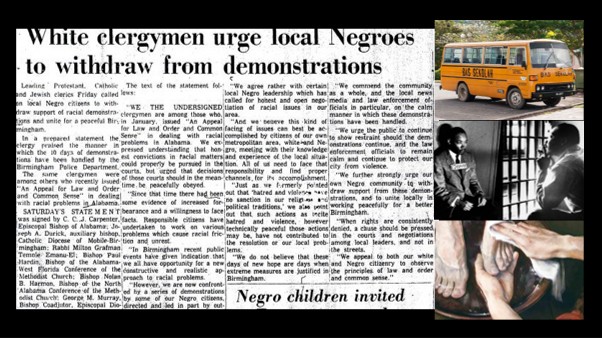This Sunday, the lectionary invites us to ponder John 14:23-29. The English Standard Version supplies verses 15-31 with the heading “Jesus Promises the Holy Spirit.”
As I said last week, in this part of his gospel, John focuses on Jesus’ farewell speech.
It’s evening. Jesus has washed the feet of the twelve men whom he’s trained for three years. They’ve eaten together. He’s sent Judas to betray him. He’s given them a new commandment. It’s in John 13:34-35,
“… love one another, just as I have loved you, you also are to love one another. By this all people will know that you are my disciples, if you have love for one another.”
John tells us Jesus told them that the proof of loving him, is keeping his word. What does “keeping his word” mean?
In our passage, it means living a life in which every decision we make is in line with what we would do if God, the Father, were always with us.
In verse 23, John tells us that how Jesus put it:
“If anyone loves me, he will keep my word, and my Father will love him, and we will come to him and make our home with him.”
A few weeks ago, a mother in our church readied her 8-year-old boy for school. He didn’t want to go. She insisted. She fed him, got him dressed, got him to put on his shoes, walked him to the bus, got him on the bus.
The boy was very unhappy. From the bus, he sent her a voicemail. He said she doesn’t love him. She was deeply hurt.
Clearly love is about how we treat one other. How did the boy expect his mother to treat him, to show her love for him? Did she fail the love test?
If I wash your feet, am I saying that I’ll do whatever you want? Or am I saying, “although I don’t always do what you want, I love you?”
Suppose you live in a society which doesn’t allow you to sit in the same room as someone whose skin colour is different from yours. Suppose it also doesn’t allow you to drink from the same tap or use the same toilets.
Suppose you know that resistance always results in injury to people and property; always police beatings; always fines and time in jail.
Suppose you’re told you should show love towards your enemy, your neighbour. So, you should maintain the peace. You should not resist. Because Jesus said we should love one another. Because he didn’t resist.
How would you respond?
In the United States of America, there was a man called Revd. Dr. Martin Luther King Jr. He was assassinated, aged 39-years, in 1968.
King was a Christian. A Baptist preacher. A man of peace. A man of justice. He encouraged resistance. He resisted. Non-violently. He got arrested. Got jailed.
While he, a Black man, was in jail, eight white preachers published a statement in a newspaper. They asked him to stop what he was doing. They said the time wasn’t right. They said he should wait for a better time to press for racial equality. They titled their statement “A Call for Unity.”
King responded with a letter. It became known as “Letter from Birmingham Jail.” [1] It’s dated April 16, 1963. My favourite line in it reads,
“Injustice anywhere is a threat to justice everywhere. We are caught in an inescapable network of mutuality, tied in a single garment of destiny.”
People often don’t mention that King was a Christian pastor. He learned his theology from Jesus. It was mediated through the centuries by many Christians, theologians, with whom God dwelt, as he does with us.
In his letter, King appealed to St. Augustine, Thomas Aquinas, Paul Tillich. These men lived and wrote over a span of 16 centuries! [2]
Like us, they must have wondered what Jesus expected the eleven to understand, when he said to them, in his farewell speech, the day before he died: “keep my word.”
I think they concluded that Jesus didn’t mean, “keep the peace, no matter who gets hurt.”
I think they concluded that Jesus meant “keep the whole counsel of God.” [3] I think this was how the Apostle Paul understood what Jesus said. Paul used the term “the whole counsel of God” in his farewell speech to the Ephesian elders. You can read it in Acts 20.
I cannot expand on it here. I can only say that Donald MacLean explains it very well in his Table Talk article, “Preaching the Whole Counsel of God.” [4] He discerns six elements in Paul’s exposition of the whole counsel of God: consistency, humility, endurance, compassion, self-denial, prayer.
I’ve included a link to the article. I encourage you to read it.
Peace be with you.
[1] https://minio.la.utexas.edu/webeditor-files/coretexts/pdf/1963_mlk_letter.pdf.
[2] St Augustine was born in AD 354; Paul Tillich died in AD 1965. King also appealed to Martin Buber, a philosopher (who also died in 1965). He couldn’t “quote” them, because he was writing from a jail cell, with no access to their books.
[3] The Apostle Paul uses this expression in his farewell speech, in Acts 20:27.
[4] https://tabletalkmagazine.com/posts/preaching-the-whole-counsel-of-god/.
To learn more about Rama, click here.



Pingback: How to do greater works than Jesus? – Bangsar Lutheran Church